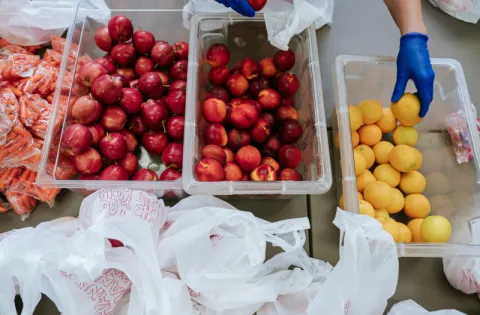When we talk about childhood hunger, we usually speak about its impact on kids - their school grades and attendance, their likelihood of graduating, their health outcomes, their future productivity, their ability to escape the cycle of poverty.
But childhood hunger impacts some adults, too, in profound ways.
Research shows women are disproportionately affected by hunger, with food insecurity being more prevalent in households headed by single women than by single men or married couples.
There are many reasons why hunger impacts women so significantly. Today, women are 35% more likely to experience poverty than men. Although women make up nearly half of the workforce, they account for 60% of the nation's lowest paid workers.
The impact of hunger on women is often less obvious, but the truth is hunger takes a very real toll on them. Here are three things to know about how hunger affects women.
- Women shoulder a lot of responsibility that puts their food security at risk.
Caretaking responsibilities often fall to women, regardless of their marital status. Women increasingly shoulder the burden of child care, family caretaking and the cost and impact of pregnancy. An insufficient supply of affordable child care in our country also means moms spend a large share of their income on it, or sometimes can't afford to work. Moms also tend to be the parent sacrificing work and income to take care of a sick child.
- Women cope with hunger in ways that are detrimental to their well-being.
Women are particularly vulnerable to coping with hunger in ways that are risky to their health. Moms are more likely to skip meals so their children have enough food, raising their likelihood of illness, obesity, stress, depression and workplace absences. Parents, especially moms, lose productivity in the workplace when they forgo eating as a coping strategy in response to food insecurity.
- Food insecurity during pregnancy can have a long-term impact on more than just moms.
Women in low-wage jobs often forfeit income during their pregnancies and immediate following child's birth because of a lack of paid sick leave. Food insecurity during pregnancy can have serious implications on the health and development of a child, including their ability to learn and succeed in school.
That's where child nutrition programs come into play. When moms have access to programs like the Supplemental Nutrition Assistance Program (SNAP) and when kids eat school breakfast, it helps to ease the stress of food insecurity at home.
Stay in touch with us on these issues and join Team No Kid Hungry to receive email updates from us.



